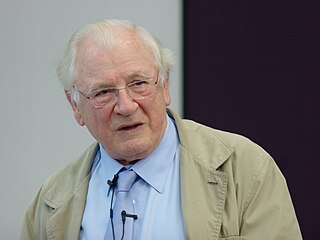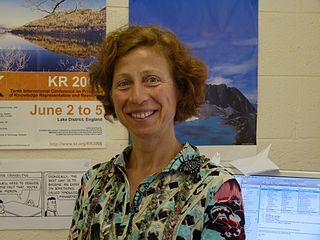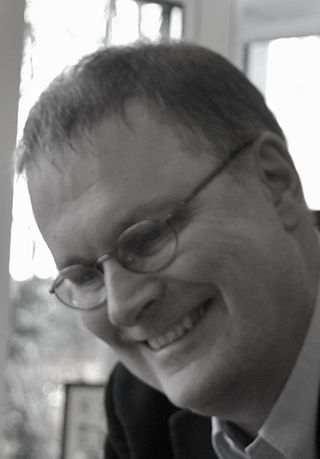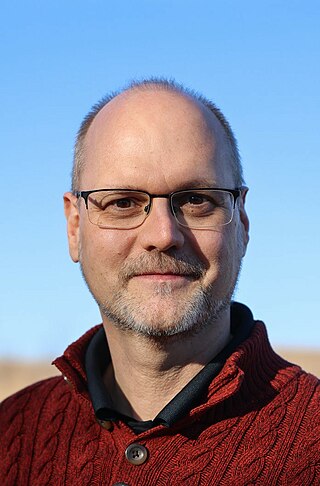Related Research Articles
Description logics (DL) are a family of formal knowledge representation languages. Many DLs are more expressive than propositional logic but less expressive than first-order logic. In contrast to the latter, the core reasoning problems for DLs are (usually) decidable, and efficient decision procedures have been designed and implemented for these problems. There are general, spatial, temporal, spatiotemporal, and fuzzy description logics, and each description logic features a different balance between expressive power and reasoning complexity by supporting different sets of mathematical constructors.
A non-monotonic logic is a formal logic whose conclusion relation is not monotonic. In other words, non-monotonic logics are devised to capture and represent defeasible inferences, i.e., a kind of inference in which reasoners draw tentative conclusions, enabling reasoners to retract their conclusion(s) based on further evidence. Most studied formal logics have a monotonic entailment relation, meaning that adding a formula to the hypotheses never produces a pruning of its set of conclusions. Intuitively, monotonicity indicates that learning a new piece of knowledge cannot reduce the set of what is known. Monotonic logics cannot handle various reasoning tasks such as reasoning by default, abductive reasoning, some important approaches to reasoning about knowledge, and similarly, belief revision.
Zohar Manna was an Israeli-American computer scientist who was a professor of computer science at Stanford University.

Logic in computer science covers the overlap between the field of logic and that of computer science. The topic can essentially be divided into three main areas:

Deborah Louise McGuinness is an American computer scientist and researcher at Rensselaer Polytechnic Institute (RPI). She is a professor of Computer, Cognitive and Web Sciences, Industrial and Systems Engineering, and an endowed chair in the Tetherless World Constellation, a multidisciplinary research institution within RPI that focuses on the study of theories, methods and applications of the World Wide Web. Her fields of expertise include interdisciplinary data integration, artificial intelligence, specifically in knowledge representation and reasoning, description logics, the semantic web, explanation, and trust.
Dov M. Gabbay is an Israeli logician. He is Augustus De Morgan Professor Emeritus of Logic at the Group of Logic, Language and Computation, Department of Computer Science, King's College London.

Alan Richard Bundy is a professor at the School of Informatics at the University of Edinburgh, known for his contributions to automated reasoning, especially to proof planning, the use of meta-level reasoning to guide proof search.

Ian Robert Horrocks is a professor of computer science at the University of Oxford in the UK and a Fellow of Oriel College, Oxford. His research focuses on knowledge representation and reasoning, particularly ontology languages, description logic and optimised tableaux decision procedures.

John Alan Robinson was a philosopher, mathematician, and computer scientist. He was a professor emeritus at Syracuse University.

Moshe Ya'akov Vardi is an Israeli theoretical computer scientist. He is the Karen Ostrum George Distinguished Service Professor in Computational Engineering at Rice University, United States. and a faculty advisor for the Ken Kennedy Institute. His interests focus on applications of logic to computer science, including database theory, finite model theory, knowledge of multi-agent systems, computer-aided verification and reasoning, and teaching logic across the curriculum. He is an expert in model checking, constraint satisfaction and database theory, common knowledge (logic), and theoretical computer science.

Leonhard Wolfgang Bibel is a German computer scientist, mathematician and Professor emeritus at the Department of Computer Science of the Technische Universität Darmstadt. He was one of the founders of the research area of artificial intelligence in Germany and Europe and has been named as one of the ten most important researchers in German artificial intelligence history by the Gesellschaft für Informatik. Bibel established the necessary institutions, conferences and scientific journals and promoted the necessary research programs to establish the field of artificial intelligence.
Donald W. Loveland is a professor emeritus of computer science at Duke University who specializes in artificial intelligence. He is well known for the Davis–Putnam–Logemann–Loveland algorithm.

Ulrike M. Sattler is a professor of computer science in the information management group of the Department of Computer Science at the University of Manchester and a visiting professor at the University of Oslo.
Nachum Dershowitz is an Israeli computer scientist, known e.g. for the Dershowitz–Manna ordering and the multiset path ordering used to prove termination of term rewrite systems.
Tobias Nipkow is a German computer scientist.

Michael John Wooldridge is a professor of computer science at the University of Oxford. His main research interests is in multi-agent systems, and in particular, in the computational theory aspects of rational action in systems composed of multiple self-interested agents. His work is characterised by the use of techniques from computational logic, game theory, and social choice theory.
Arnon Avron is an Israeli mathematician and Professor at the School of Computer Science at Tel Aviv University. His research focuses on applications of mathematical logic to computer science and artificial intelligence.

Pascal Hitzler is a German American computer scientist specializing in Semantic Web and Artificial Intelligence. He is endowed Lloyd T. Smith Creativity in Engineering Chair, one of the Directors of the Institute for Digital Agriculture and Advanced Analytics (ID3A) and Director of the Center for Artificial Intelligence and Data Science (CAIDS) at Kansas State University, and the founding Editor-in-Chief of the Semantic Web journal and the IOS Press book series Studies on the Semantic Web.
Deepak Kapur is a Distinguished Professor in the Department of Computer Science at the University of New Mexico.
Giuseppe De Giacomo is an Italian computer scientist. He is a Professor of Computer Science at the Department of Computer Science, University of Oxford, and Professor of Computer Engineering at the Department of Computer, Control and Management Engineering, Sapienza University of Rome. He is also a Senior Research Fellow at the Green Templeton College.
References
- 1 2 3 Franz Baader at the Mathematics Genealogy Project
- ↑ Sattler, Ulrike (1998). Technological Knowledge Representation Systems in a Chemical Engineering Application (PhD thesis). Dresden University of Technology. Archived from the original on 2011-03-31. Retrieved 2012-06-18.
- ↑ http://lat.inf.tu-dresden.de/~baader/index-en.html Franz Baader Home Page
- ↑ Franz Baader publications indexed by Google Scholar
- ↑ Franz Baader at DBLP Bibliography Server
- ↑ "Hochschule Darmstadt: Franz Baader". Archived from the original on 2011-07-19. Retrieved 2010-02-25.
- ↑ "Herbrand Award for Distinguished Contributions to Automated Reasoning". CADE Inc. Retrieved 18 July 2021.